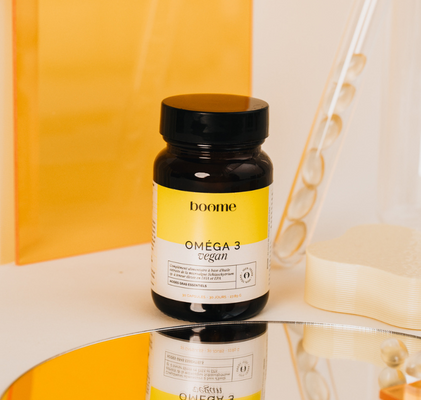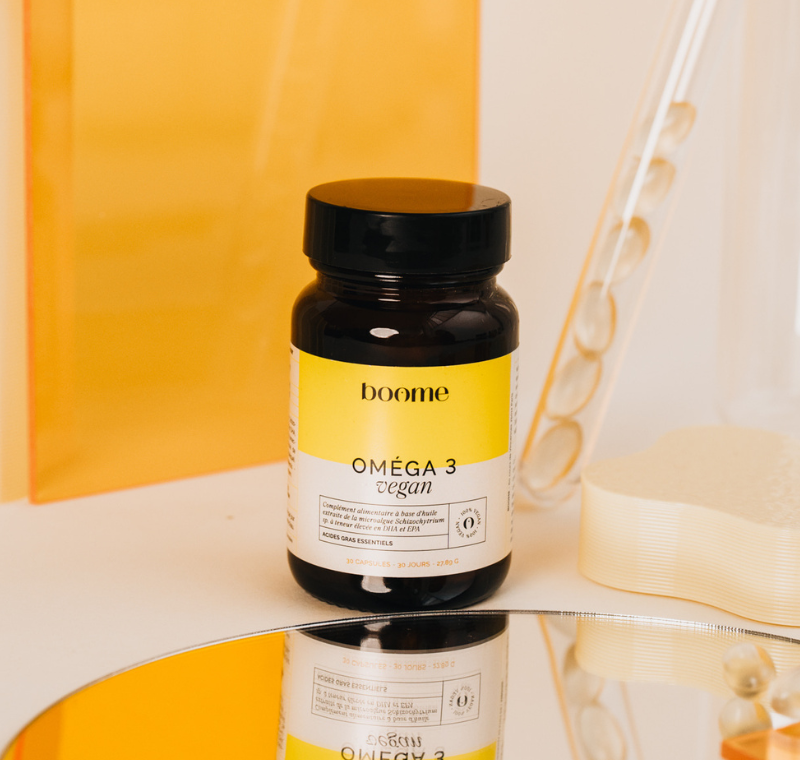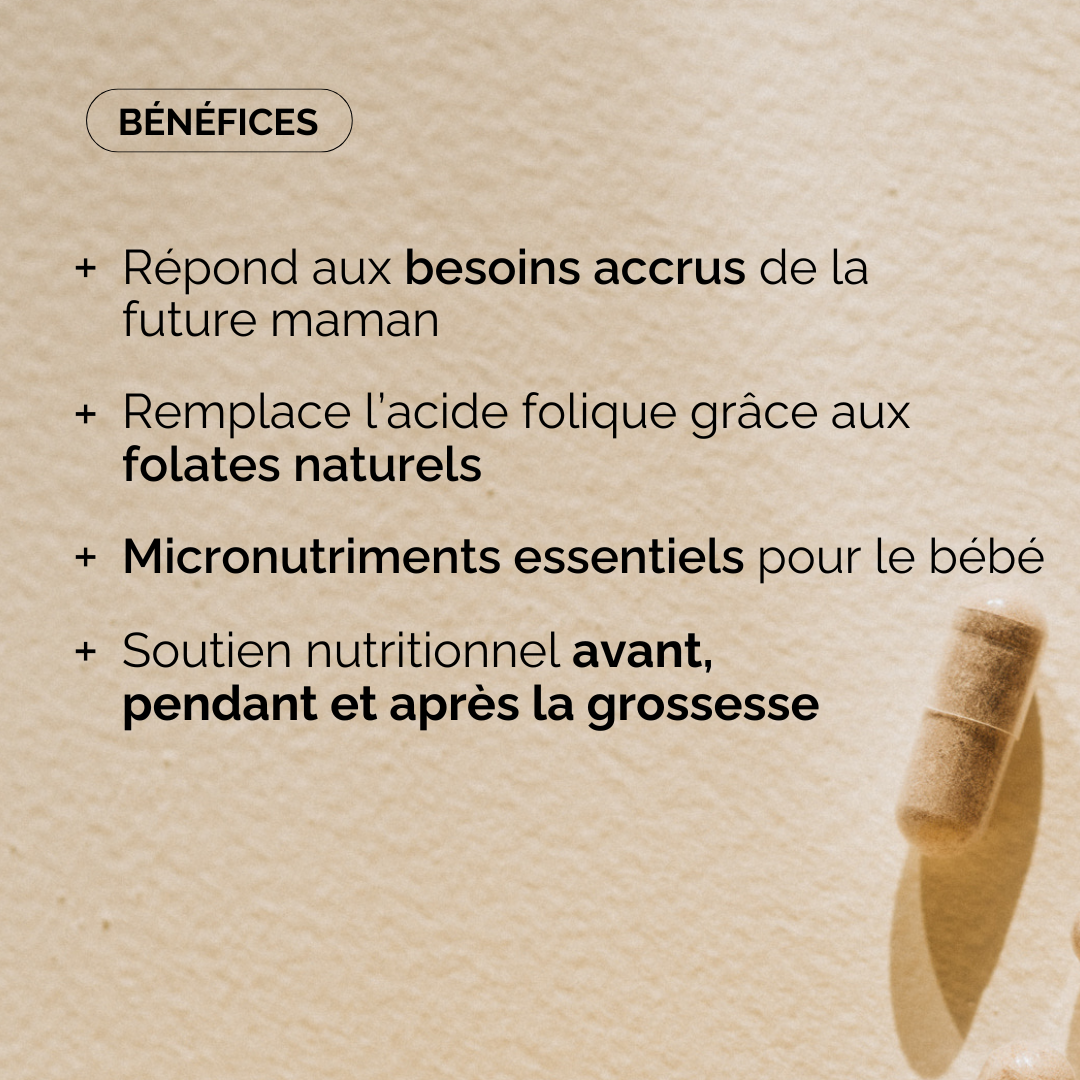
There are some little gems to consume before, during, and after pregnancy. Omega-3s are one of them. Essential fatty acids, necessary for the proper functioning of the human body, they are extremely beneficial for the health of expectant mothers and their babies. But then, why consume these essential nutrients when you're pregnant? Where can you find them and how do you take them? After reading this article, you'll be an expert on the subject. Let's go!
What are omega 3s?
Omega-3s are essential polyunsaturated fatty acids that our bodies cannot produce on their own. They play a very important role in the development and proper functioning of the human body, and especially... that of pregnant women! They contribute to health:
- of the brain;
- of the retina;
- and the nervous system.
But they also have beneficial effects on cardiovascular health, as they help regulate blood pressure and reduce levels of triglycerides (molecules from the lipid category) in the blood.
Alpha-linolenic acid (ALA) is the precursor to omega-3 fatty acids. It is absolutely essential for us to stay healthy and must be provided by our diet. From ALA, our body can synthesize other omega-3 fatty acids, such as:
- eicosapentaenoic acid (EPA);
- docosahexaenoic acid (DHA).
It is also through our diet that we get our fill of DHA.
What are the benefits of omega 3 during pregnancy?
For the mother
According to research from ANSES , omega-3s are packed with benefits for pregnant women. They play a key role in reducing the risk of prenatal depression thanks to their positive effects on mental health. But that's not all: they also help reduce certain inflammations and improve blood circulation. This can help prevent pregnancy-related complications, such as preeclampsia.
These essential fatty acids, especially DHA, also support the proper functioning of the expectant mother's immune system. A diet rich in omega-3s can help her maintain healthy blood pressure and reduce the risk of cardiovascular disease.
Omega-3s also play an important role in the postpartum period. Studies have shown that they may reduce scores associated with postpartum depression and help boost cognitive function, which is essential when you become a new mother and are tired. Overwork, poor concentration, and memory related to fatigue can be supported by regular consumption of Omega-3s.
For the future baby
The benefits of omega-3s aren't limited to expectant mothers! Your baby can benefit from them, too. DHA, again, contributes to healthy neurological and ocular development. Additionally, they can help:
- prolong the duration of pregnancy;
- thus reduce the risk of premature birth;
- enable the infant to reach a healthy birth weight.
Even after delivery, omega-3s are beneficial for the baby, as they help strengthen its immune system. This prepares it to better fight infections once it leaves the womb.
A nice little bonus: if you plan to breastfeed, know that breast milk is an excellent natural source of essential fatty acids (omega 3 and omega 6) for your little one. So, take advantage of it, it's an open bar!

Achat express










